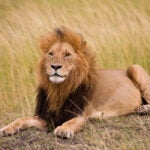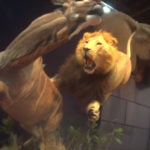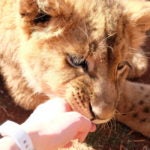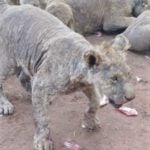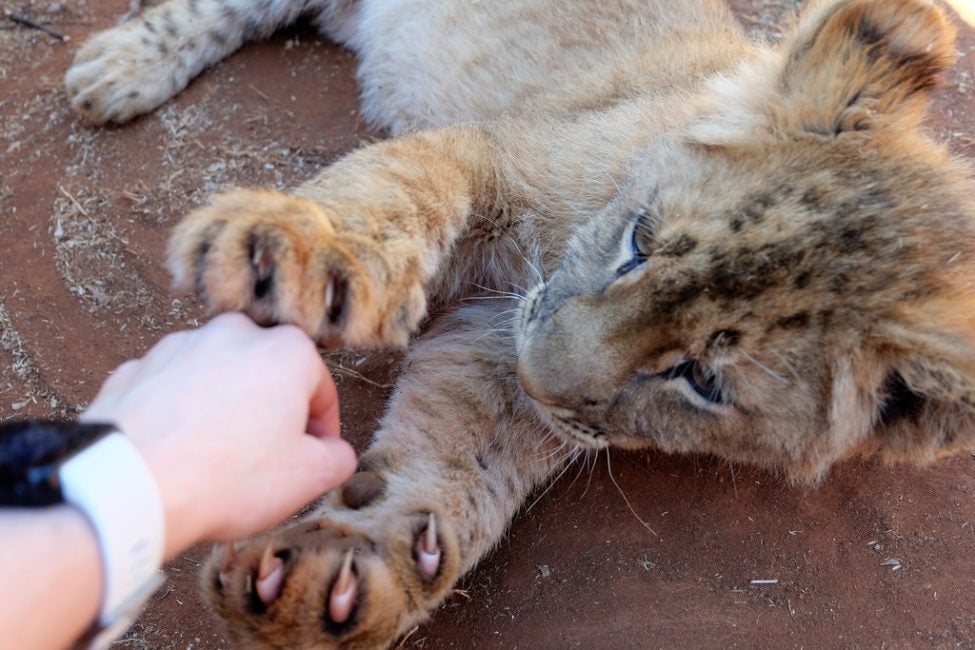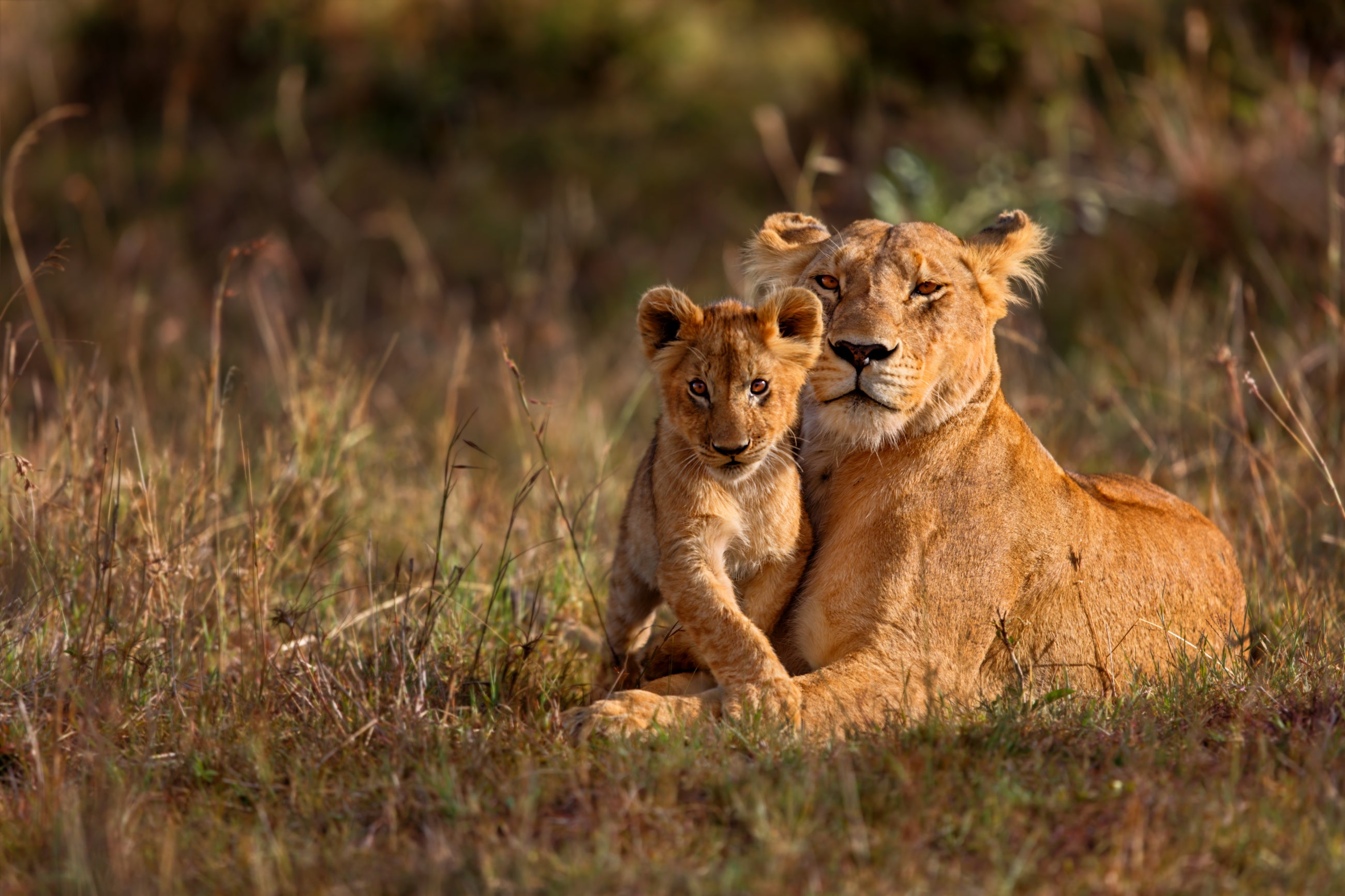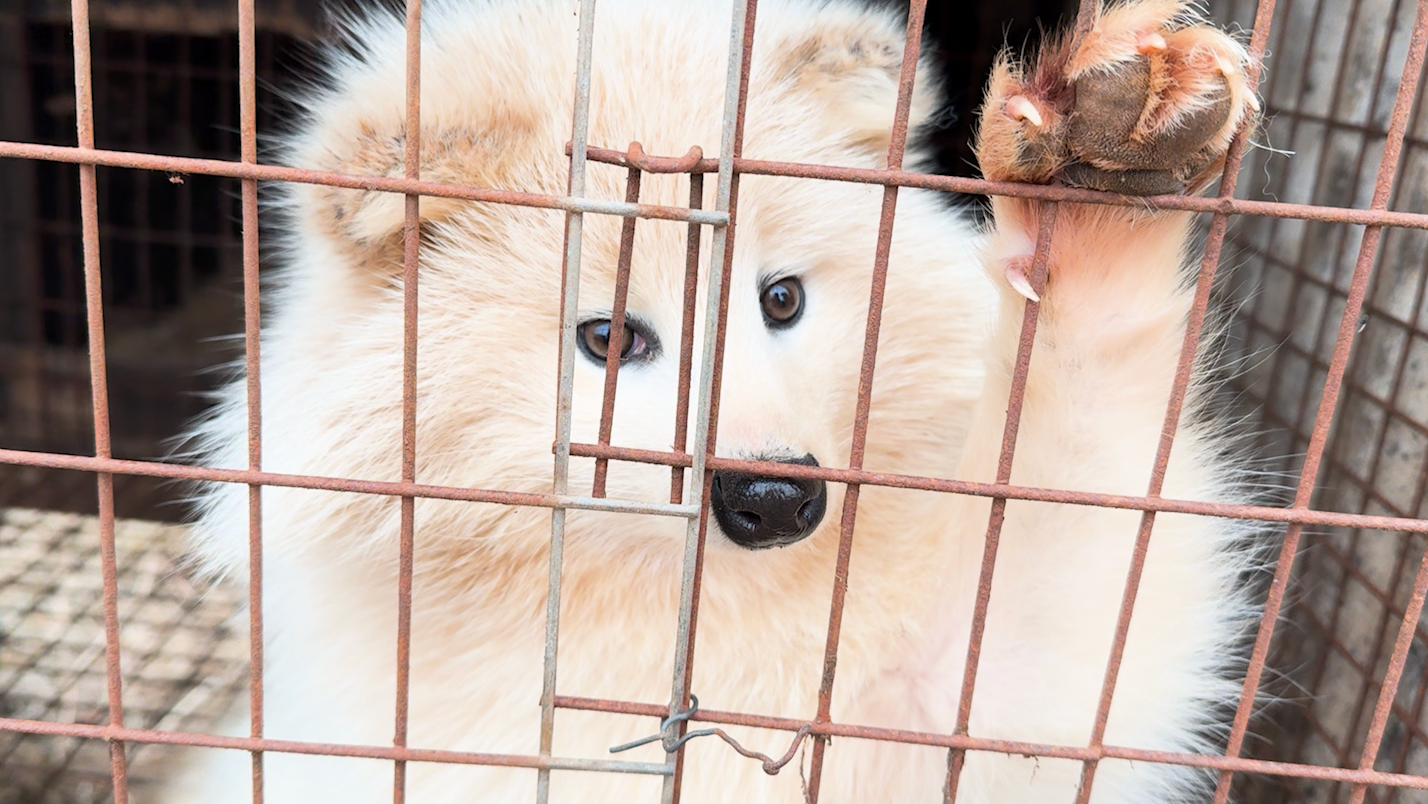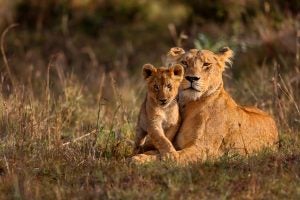
CAPE TOWN—The Department of Forestry, Fisheries and the Environment has released the recommendations of the Ministerial High Level Advisory Panel (the Panel) appointed in November 2019 to review existing policies, legislation and practices relating to the handling, breeding, hunting and trade of elephant, lion, leopard and rhinoceros.
The Panel’s recommendations include a number of positive commitments, including ending the practice of captive lion breeding and the commercial trade of lion derivatives, as well as expressly recognising animal welfare as a central pillar of wildlife management policy. These were key proposals made by Humane Society International/Africa, in comprehensive written and oral submissions to the Panel, as well as comments submitted during public participation processes in species-specific Norms and Standards development.
Captive lion breeding
“Today is a massive celebration for South African lions with the government adopting recommendations to end the abhorrent captive lion breeding industry. Lions will no longer have to suffer in horrid conditions for someone’s selfie, canned trophy or have their body parts harvested for wines and powders,” said Humane Society International/Africa wildlife director, Dr Audrey Delsink.
The new policy is welcome and will be supported by most South Africans, according to HSI/Africa, which in 2020 commissioned an independent national public opinion poll on trophy hunting, captive lion breeding and associated industries. The majority of South Africans polled oppose the breeding of lion cubs for two infamous tourist activities—cub petting and lion-walking. These activities are also linked to canned hunting and the lion bone trade.
According to the organisation, South Africa is the top exporter of lion trophies in the world—and most of these are lions who originate from the country’s notorious captive lion breeding industry. An HSI analysis of trade data of mammal species listed under the Convention on International Trade in Endangered Species of Wild Fauna and Flora (CITES) between 2014 and 2018 found that 4,176 lion trophies were exported from South Africa (as well as 25 captive-source tiger trophies).
“We applaud the decision to end captive lion breeding and will study the other recommendations comprehensively to consider all details. We are also pleased that animal welfare considerations are now expressly recognised as a central pillar of wildlife management policy.
“Considerations of animal sentience and welfare are key to wildlife policy decisions. This was one of the main elements in HSI/Africa’s comprehensive submission to the Panel, and also forms part of all of our submissions in the development of Norms and Standards for the different species,” added Delsink.
Trophy hunting
HSI/Africa remains concerned about the centrality of trophy hunting in South Africa’s wildlife sector and the ongoing focus on generating revenue through hunting the country’s iconic species.
“We are mindful of the need to alleviate poverty through economic development in the biodiversity sector. However, after the mass of scientific evidence that was put before the Panel by HSI/Africa and other organisations regarding the harmful consumptive use of imperiled species, we are concerned that the Panel’s recommendations envisage an expansion of trophy hunting,” said Delsink.
“Our independent national survey revealed that 64% of South Africans share this concern and oppose trophy hunting. The poll results were consistent regardless of race, gender, age and income,” said Delsink.
The CITES trade data analysis between 2014 and 2018 showed that South Africa exported 574 African leopard trophies—with 98% of those wild sourced and 2% bred in captivity. In addition, 1,337 African elephant trophies and 21 black rhino trophies were also exported.
“Despite these ongoing concerns regarding trophy hunting as opposed to non-consumptive wildlife uses, today marks an important step in transforming and reframing South Africa’s wildlife policy. We welcome the department’s policy paper on the recommendations for public comments and their expressed commitment to inclusive and transparent dialogue with all stakeholders, and look forward to engaging further,” concluded Delsink.
ENDS
Media contact: Marisol Gutierrez, HSI/Africa, media and communications manager: +27 72 358 9531; mgutierrez@hsi.org

